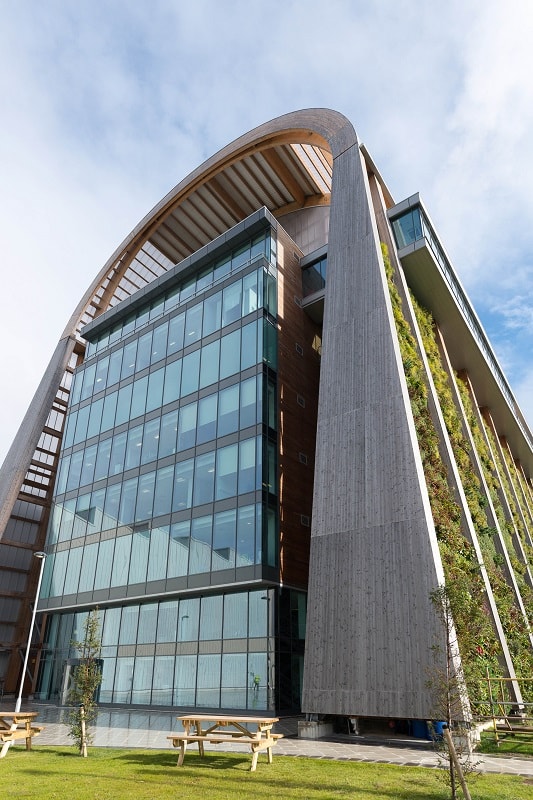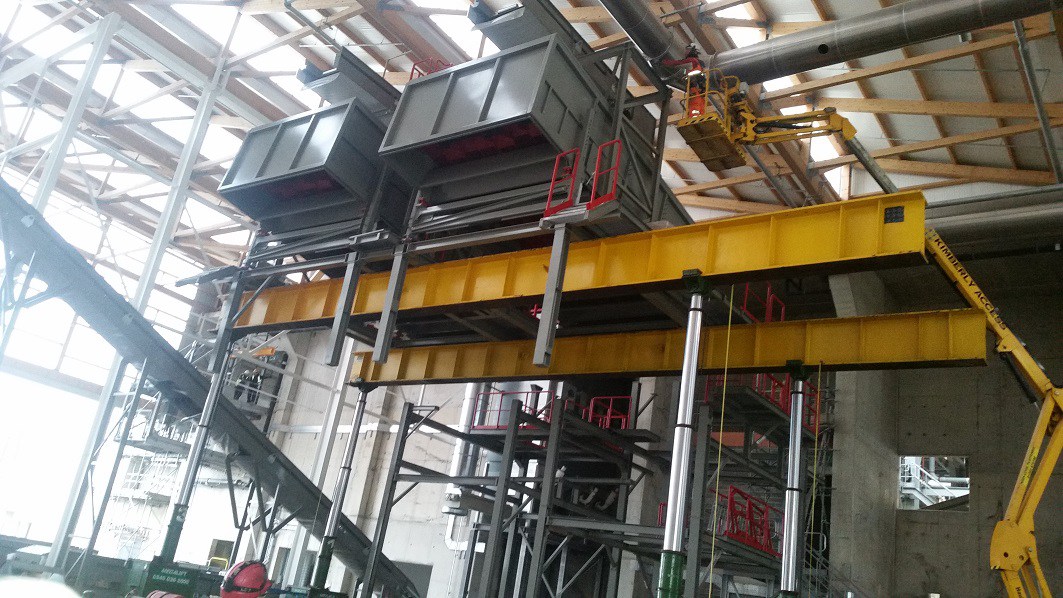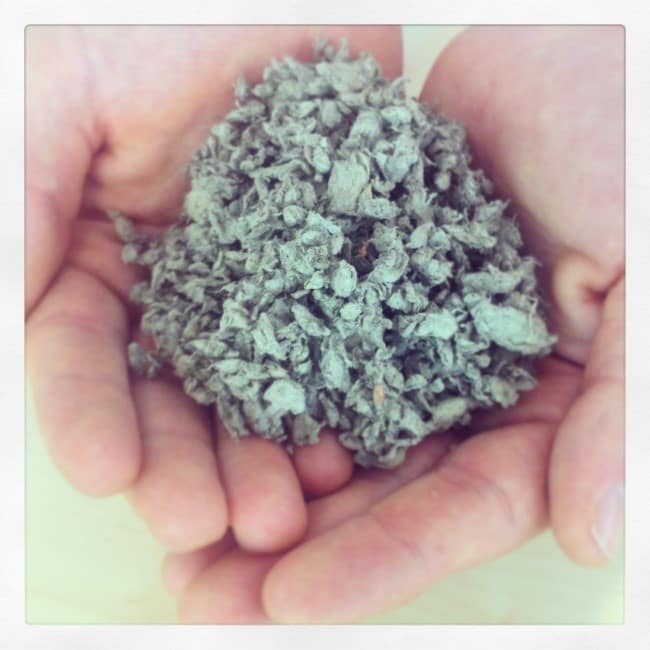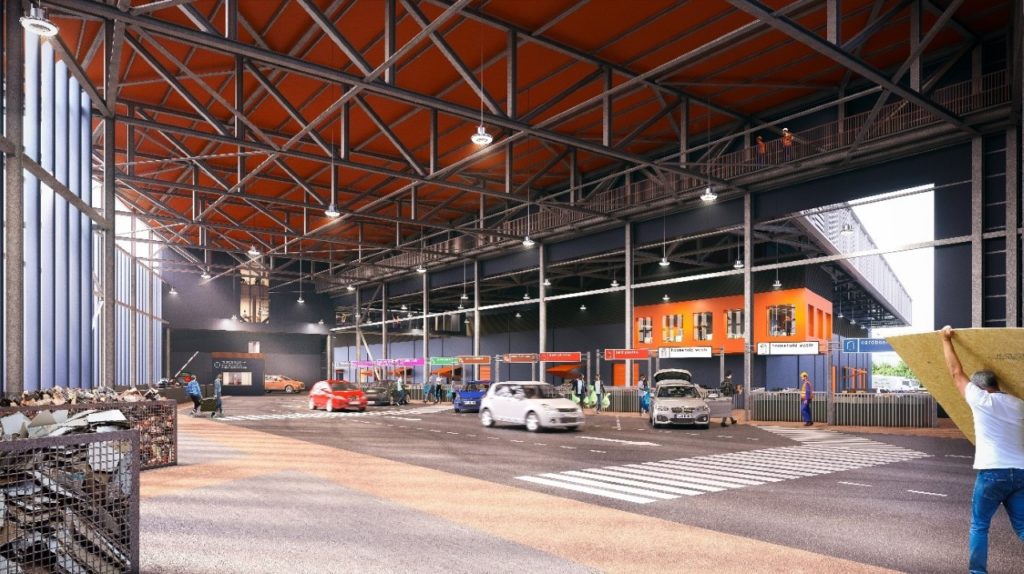
Veolia secured a contract in 2012 for the construction of a recycling and energy recovery facility which was officially opened last November (see letsrecycle.com story).
Leeds city council said yesterday (29 March) that the energy recovery aspect of the facility was performing well but the recycling side was underperforming.
Councillor Lucinda Yeadon, deputy leader and executive board member with responsibility for environment and sustainability told letsrecycle.com: “We are committed to recycling and have a target to recycle 50% of Leeds waste by 2020. The energy recovery element of the Recycling and Energy Recovery Facility is performing well, and beyond expectations at this point of the contract, saving the council £7million every year, and generating enough energy to power 22,000 homes.”
Cllr Yeadon added: “However, due to some technical issues, the recycling element of the facility is currently not performing as it should, and Veolia are currently looking into this to see how they can upgrade their technology, at no extra cost to the council, so as to ensure they meet their contractual requirements for the future.”
The deputy leader also noted that the council is having “robust conversations with Veolia to make sure they deliver on the contract and fix the issues with the recycling element of the facility sooner rather than later.”
Success
A Veolia spokesperson also emphasised the success of the energy side of the plant and explained that an upgrade was happening to recycling part which involves mechanical pre-treatment.
The spokesperson said: “We are pleased to announce our flagship Recycling and Energy Recovery facility in Leeds continues to operate above performance and is generating enough energy to power 22,000 homes.
“With regards to our front end, mechanical pre-treatment process, we are currently undergoing an upgrade to improve efficiency. These steps include investing in key pieces of technology and introducing a third shift of staff to maximise operational flexibility, which will also have the added benefit of creating new local jobs.”
And, they added: “We are also utilising our global expertise at the facility to monitor and improve equipment reliability. Veolia understands the importance of achieving the recycling rate for the city and are committed to working collaboratively with Leeds City Council.”
Technology
The position statements come in the wake of a report discussed last week by Leeds city council’s environment and housing scrutiny board, there are some issues with the recycling facility technology and challenges in securing waste paper outlets until an on-site Pro-Fibre pulping plant, to which the facility will be linked, is completed.
The recycling plant is expected to take out about 10% of the 183,000 tonnes of municipal waste going in at the front end of the energy recovery plant. Veolia has explained: “This will include recyclable non-ferrous and ferrous metals, plastics, mixed paper and cardboard providing a beneficial boost to the city’s recycling rates.”
But, the city council report has highlighted problems regarding the actual level of recycling at the plant. Responding to a quarter one improvement notice for 2016/17, Veolia cited as causes of low recycling levels, “quality of materials, changing markets, snagging issues and access issues for cleaning the mechanical pretreatment facility”.
Veolia then gave a 4.3% recycling projection for the current year and the council said the shortfall was mainly due to the lead-in time for the planned “paper pulping facility” at the back of the incinerator, which would provide an outlet for reprocessing the paper and card outputs.

Since then, there have been continuing difficulties in the plant, with a quarter two and quarter three improvement notices issued. For the current financial year, Veolia is now forecasting a 2.1% recycling contribution from the plant rather than the 10% originally expected under the contract.
Discussions
On the sorting technology, the council notes that Veolia has had discussions with “their primary subcontractors” with the conclusion that key elements need wholesale upgrading and replacement with specific reference to the ballistic separators.
A temporary repair is underway, councillors heard, to allow the plant to be operated in the medium-term before the fuller replacement can be undertaken.
The plant was supplied by Waste Treatment Technologies (WTT) which has offices in the Netherlands, Germany and Spain. The company has said that it supplied a turnkey mechanical pre-treatment plant, treating 214,000 tonnes of municipal waste per year. “The plant is designed with 2 identical treating lines, consisting out of: shredders, drum screens, ferro and non-ferro separators, ballistic separators, several NIR’s (optical sorters), automatic bunkers for storage of recyclables and a compactor-baler. WTT also designed and supplies the air-treatment system for the building.”
WTT project manager for the Leeds contract, Robert Kuipers, told letsrecycle.com that all inquiries about the facility are being handled by Veolia.
Pro-Fibre
The Pro-Fibre fuel plant to be developed at Leeds is part of Veolia’s work to find a use for low quality paper salvaged at energy from waste plants from incoming residual waste. The company describes Pro-Fibre as “paper pulp produced from contaminated paper”.

The waste management company’s first steps in this sort of paper salvage were announced back in 2014 when in Sheffield it worked on a pilot plant for Pro-Fibre. The process includes identifying and capturing the non-recyclable fibre fragments, pulping, cleaning, screening and a mechanical pressing stage.
Pulping
The Leeds Pro-Fibre plant initially aims to process up to 10,000 tonnes within the first 12 months and then up to 20,000 tonnes per year – a maximum of 20 tonnes will be processed daily.
Material will be delivered “just in time” with incoming waste paper and cardboard transferred directly to the paper pulper for batch processing. Water will be added to create a suitable pulp.
At present Veolia is not intending to dry the pulp but this may be an option in the future. The Environment Agency has authorised a permit for the Pro-Fibre plant but more information would be required if the dryer plan goes ahead.
Related links
Leeds city council
Veolia
WTT








Subscribe for free